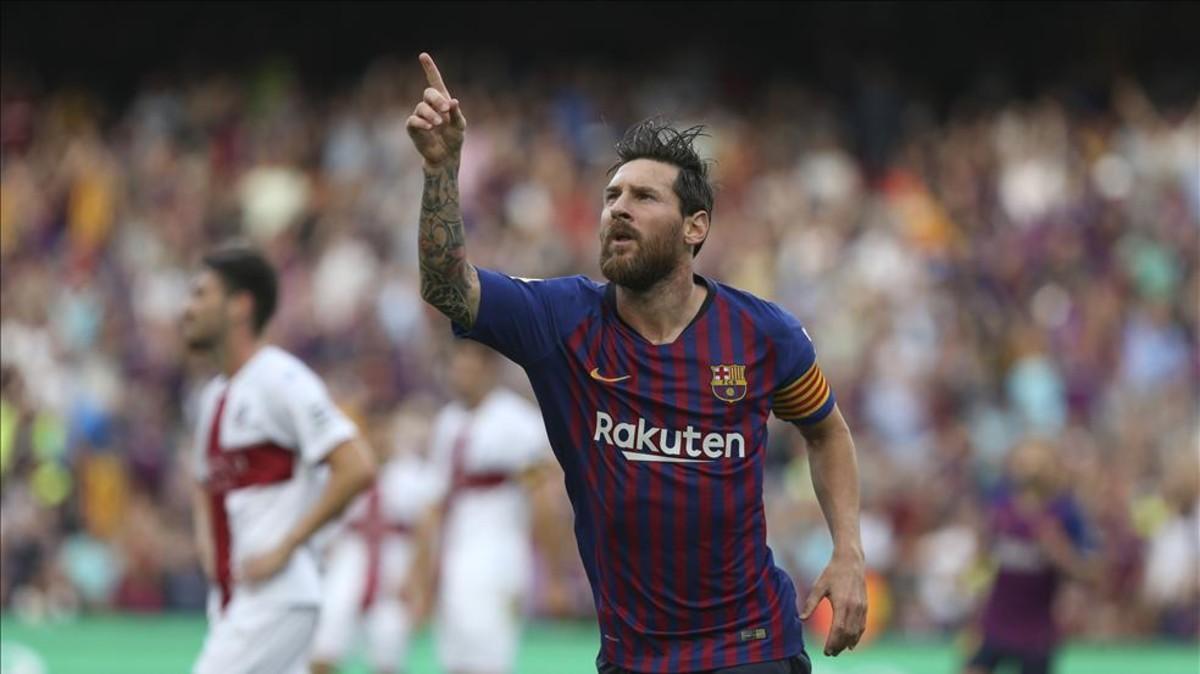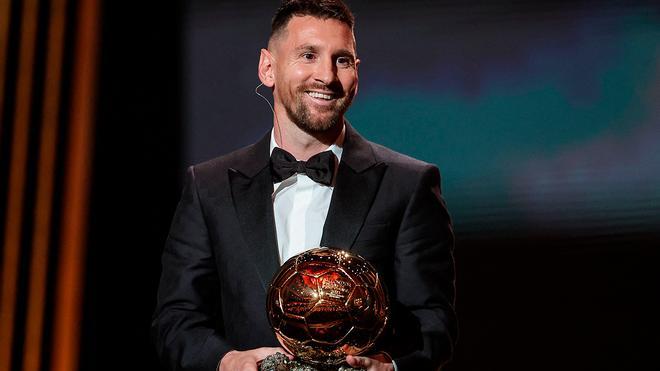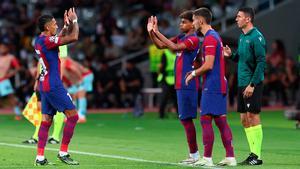With or without The Best, Messi's unique and the best

For the first time in 12 years, Lionel Messi's not in the top three for FIFA's World Player of the Year award. And I don't understand it. The first conclusion I draw is that the prize is linked to sporting success. It's unquestionable that Cristiano Ronaldo, Luka Modric and Mohamad Salah are excellent players. But the absence of Messi on the list is up for debate. It's unjust. It's like having Di Stefano or Cruyff around still and not nominating them. No sporting result can cover Messi's brilliance. The Argentine is unique. Plus, as well as the title he won with Barcelona last season, the league and the cup, he won the European Golden Shoe (34 league goals) and was the top scorer in Europe in all competitions (45). As well as his numbers, he's a joy to watch on the pitch and is still the best player in the world. If you look at his World Cup, you also have to say he dragged Argentina to Russia. His country's performances once there wasn't so good. But he was no worse than Salah.
There are figures in football, like in art and music, whose uniqueness gives them a specific weight. While they are active and at the height of their profession, they're importance is indisputable. The Barça captain is in that bracket. I ask myself: who took the decision to leave Messi off the podium? I have no doubt that he's the best in the world. He's unique and his talent, inspiration and wisdom is on display in every match,
Sometimes, success in football is so overwhelming that it's shared by the majority in the world of football. And other times, that's not the case. I think that's how to explain Messi's absence. Many agree that his absence cannot be explained. We can say that Ronaldo had a good season, scoring the same amount of goals as Salah (44) and that Modric had a brilliant year with Real Madrid and Croatia.
And excluding Antoine Griezmann, an excellent year with Atletico and a World Cup winner with France, FIFA have instead paid recognition to an Egyptian player that yes, is very good, but he's still not at the level of his rivals, perhaps because of that generosity so typical of the highest organism of football to try to show recognition to cultural diversity (that often sounds more like a slogan than a real commitment).
Messi showed last season that he's still at the top of his career. That there was no success at the World Cup does not change that. As Barcelona captain, he's going through a period that I call 'The loneliness of a crack.' Something that has happened to the greats at certain moments in their career. Diego Maradona, for example, at Napoli. He had to overcome the lack of quality in his team to guide the Italians to five titles in the most glorious era of their history.
It's true that Messi is better accompanied in Barcelona than Diego was in that Napoli team. But even so, he's going through a new experience, which sees him leading his teammates. And I think he's prepared for that. But it's a time of his career full of responsibility, in which he will have a bigger participation in the team's decisions. That's why I refer to loneliness, that significant moment in which the No.10 must actively participate in Barça's decision-making, without the support of Iniesta or Xavi. But he is still, with or without a nomination for The Best, the best player in the world.
The nominees for the Best Coach aware are also a mixed back. Didier Deschamps won the World Cup with France, Dalic was a finalist with Croatia and Zinedine Zidane won the Champions League. You cannot compare the prestige of one coach or another based only on sporting success. A coach is not good because they win. They become stronger throughout their career, as they learn, as they improve a group of players... And that's not evaluated in a World Cup or a Champions League (both exciting, beautiful competitions) but in the league.
The World Cup and Champions League are great spectacles for fans and for the business side of things. But they have nothing to do with being a great manager solely because you win one of them. How do you assess a coach's interventions in a team? Is a team that wins via a penalty shootout better or a team that sustains their idea during a tournament? And if you end up knocked out in different circumstances, perhaps the injury of an important player, does that make the coach's management of the squad worse?
In these competitions, a lot of factors are at played in the games, including luck. Remember Barcelona's game against Roma? Or their game against Jose Mourinho's Inter? You can lose a game. But where you see the work, the manager's footprints, is in their capacity to get the best out of what they have and to correct the ills during a league season.




